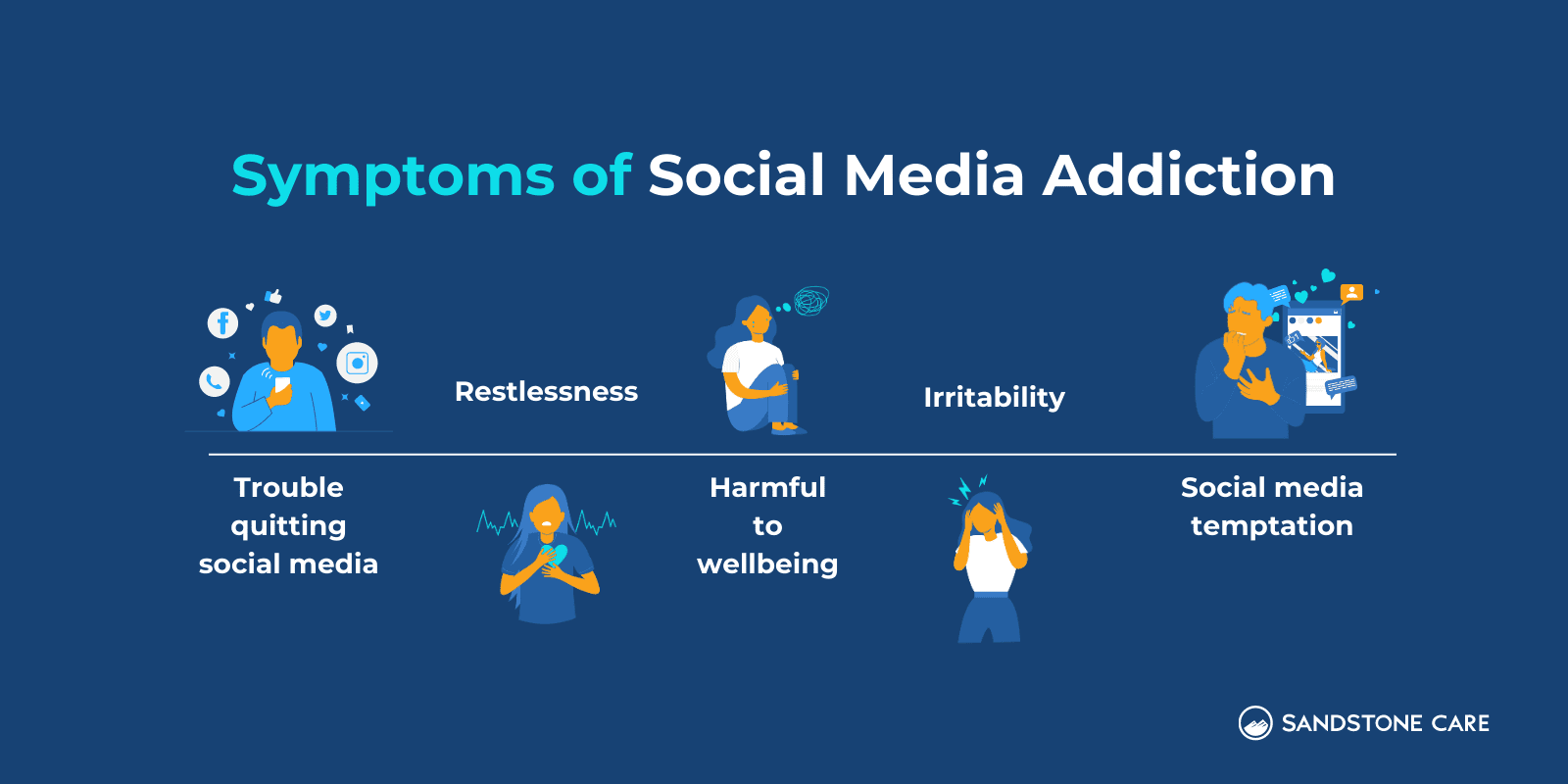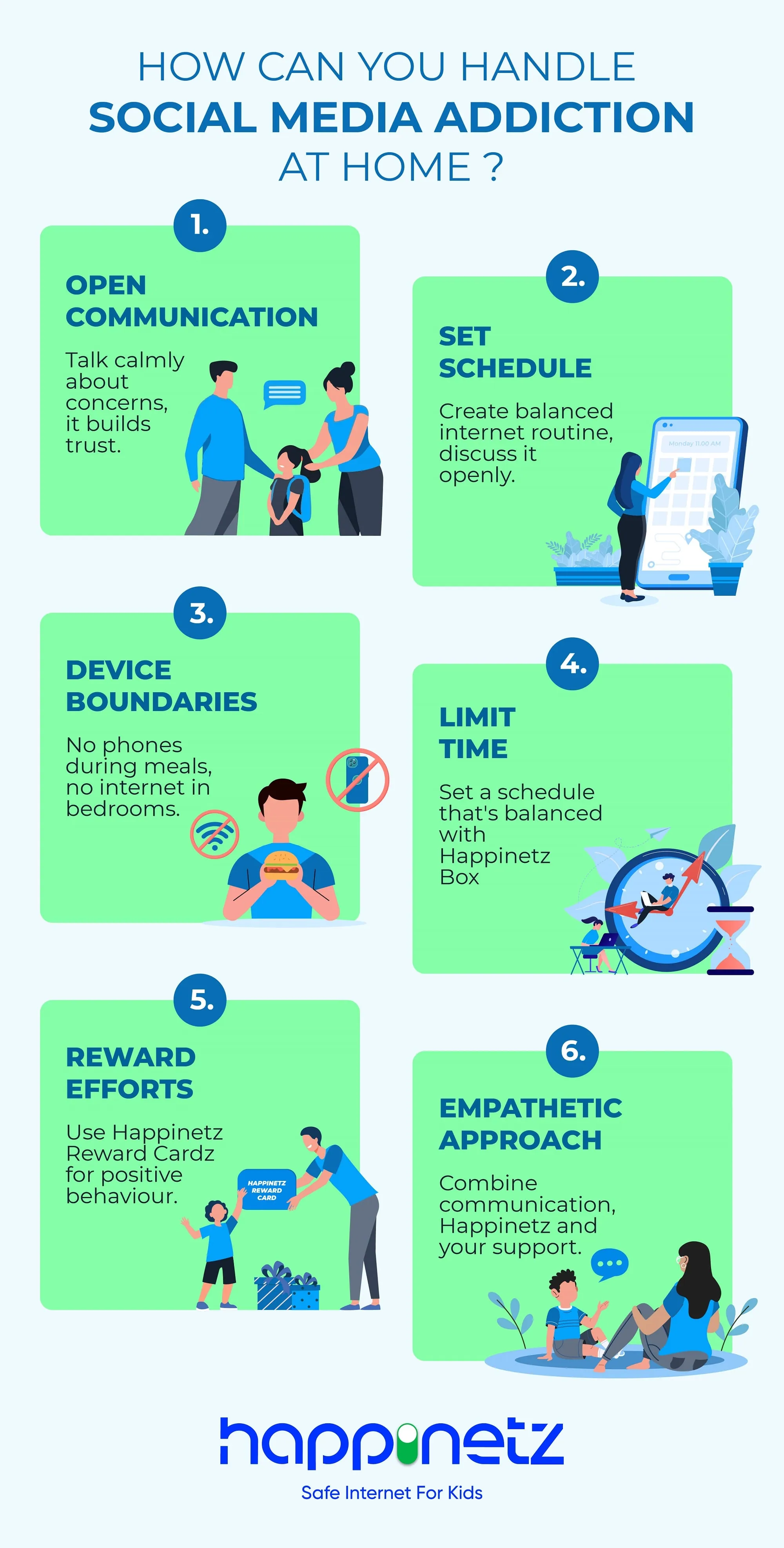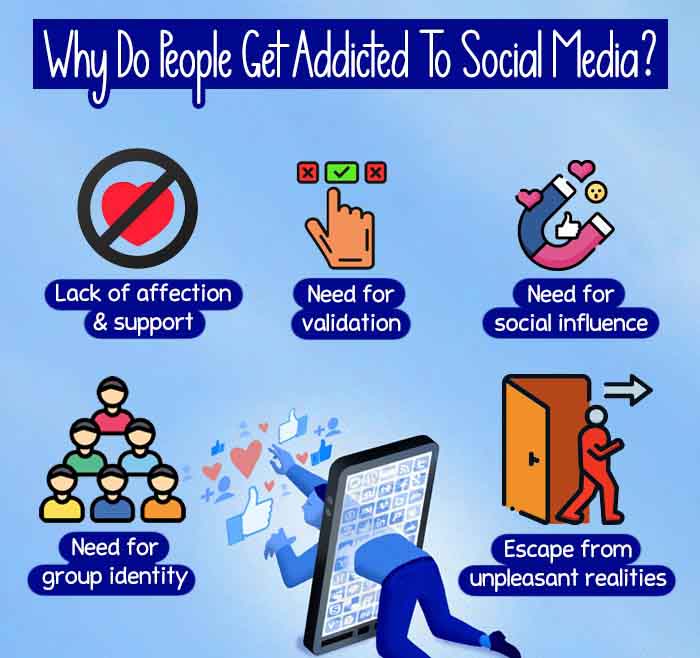Antwort How bad is social media addiction? Weitere Antworten – How does social media addiction affect your life

However, the self-isolation, lack of physical activity, and distortion of reality caused by social media addiction can worsen depression and anxiety considerably. Sadly, in some cases, addicts may become so depressed or anxious that they have thoughts of self-harm or consider ending their lives.Social Media Obsession And Anxiety- How To Overcome It
- Admitting It To Yourself.
- Set Boundaries.
- Digital Detox.
- Focus On The Present.
- Interact With People IRL.
- Surround Yourself With Positivity.
- Speak To A Professional.
The more time spent on social media can lead to cyberbullying, social anxiety, depression, and exposure to content that is not age appropriate. Social Media is addicting.

How do you tell if you are addicted to social media : Common signs of a social media addiction can include:
- Spending a significant amount of time using or checking social media.
- Spending a lot of time using social media instead of other activities, hobbies, or responsibilities.
- Feeling an uncontrollable urge to check social media.
What does social media do to your brain
Using it activates the brain's reward center by releasing dopamine, a “feel-good chemical” linked to pleasurable activities such as sex, food, and social interaction. The platforms are designed to be addictive and are associated with anxiety, depression, and even physical ailments.
Is social media bad for mental health : Several studies have indicated that the prolonged use of social networking sites (SNS), such as Facebook, may be related to signs and symptoms of depression. In addition, some authors have indicated that certain SNS activities might be associated with low self-esteem, especially in children and adolescents.
While many people are able to use social media on a daily basis with no problem, those suffering from a social media addiction are consumed by their need to use and engage on social networking sites. Luckily, the condition is very treatable and many have successfully recovered.

Because this disorder can latch onto anything, it makes sense that OCD symptoms could be exacerbated by social media use. In other words, social media's constant stream of information—news, videos, images, anything and everything—could potentially fuel obsessions, or become an obsession itself.
What are 5 dangers of social media
The dangers
- cyberbullying (bullying using digital technology)
- invasion of privacy.
- identity theft.
- your child seeing offensive images and messages.
- the presence of strangers who may be there to 'groom' other members.
Social media provides an endless amount of immediate rewards in the form of attention from others for relatively minimal effort. The brain rewires itself through this positive reinforcement, making people desire likes, retweets, and emoticon reactions.Teenagers who use social media for three or more hours every day are at an increased risk of depression, anxiety, and other mental health problems. Teens who spend between five and seven hours a day using social media are twice as likely to exhibit signs of mental health problems.

Warning signs of social media addiction
One of the biggest red flags is when the excessive use of social media platforms interferes with other daily activities.
What happens to your brain when you quit social media : The need to be constantly connected boosts the production of stress hormones, which can increase the risk of depression. Leaving social media decreases this risk while enabling feelings of focus and calm. Another benefit may be a boost in sleep and academic performance.
How to detox from social media : How to detox from social media: top 12 tips
- Schedule some downtime.
- Set time limits on apps.
- Gradually reduce social media usage.
- Tell your friends and followers.
- Engage in offline activities.
- Remove social media apps.
- Detox with a friend.
- Be mindful of replacements.
Is social media bad for the brain
As you can see, social media can have a tremendous effect on how our brain functions and impacts our ability to concentrate, focus, form memories, and even our mental health. This is why it's crucial to have boundaries around it. In fact, research has shown that limiting social media use tends to boost mental health.

However, multiple studies have found a strong link between heavy social media and an increased risk for depression, anxiety, loneliness, self-harm, and even suicidal thoughts. Social media may promote negative experiences such as: Inadequacy about your life or appearance.Young social media users aged 18 to 22 account for a shocking 40% of all Americans addicted to social media. According to research from Common Sense, teens average 7 hours and 22 minutes of screen time per day, and kids 8–12 years old get an average of 4 hours and 44 minutes of screen time per day.
Is obsessive Googling OCD : Driven by a need to answer their doubts with 100% certainty, people with OCD often struggle with the compulsion of researching, often using Google to find answers they can feel sure about. More often than not, though, those answers lead them down a “rabbit hole” of information—some of it factual, some of it misleading.



